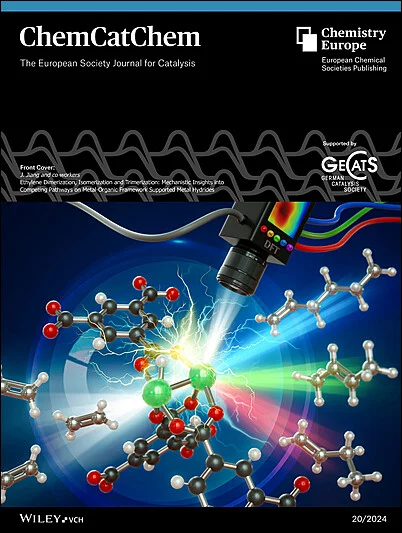阴离子开环聚合中的简易/市售路易斯酸:在大分子工程中具有多种应用前景的强效化合物
IF 3.8
3区 化学
Q2 CHEMISTRY, PHYSICAL
引用次数: 0
摘要
在阴离子开环聚合(AROP)反应中,简单且可在市场上买到的路易斯酸(LA)是常用的催化剂。特别是在环氧化物的 AROP 反应中,加入路易斯酸可以使所谓的端链机理过渡到单体活化机理。路易斯酸的存在同时导致活性中心的反应活性降低,因为它形成了一种三物种 Ate 复合物,并通过路易斯酸与环氧乙烷环上的氧原子配位激活了单体。这两种效应导致了传播动力学的增加和转移反应的减少,从而促成了高分子量聚醚的合成。然而,路易斯酸的影响远不止这些典型效应。路易斯酸确实使新功能单体的聚合以及杂交链烷大分子的合成成为可能。路易斯酸还被广泛用作共聚反应(统计、连续或交替)中的催化剂,可强烈影响大分子中单体单元的组成和顺序。最后,路易斯酸还能显著影响所得大分子的结构。本综述旨在列举路易斯酸对大分子工程的各种贡献,并通过精选的实例加以说明。本文章由计算机程序翻译,如有差异,请以英文原文为准。
Simple/commercially-available Lewis acid in anionic ring-opening polymerization: powerful compounds with multiple applications in macromolecular engineering
Simple and commercially-available Lewis acids (LA) are commonly used catalysts in anionic ring-opening polymerization (AROP) reactions. In particular, for the AROP of epoxides, the addition of a Lewis acid allows the transition from a so-called end-chain mechanism to a monomer-activated mechanism. The presence of the LA simultaneously leads to a decrease in the reactivity of active centers through the formation of a three-species ate complex and to the activation of the monomer by LA coordination to the oxygen atom of the oxirane ring. These two effects result in both an increase in propagation kinetics and a decrease in transfer reactions, which has enabled the synthesis of high molecular weight polyethers. However, the impact of Lewis acids goes far beyond these classic effects. They have indeed enabled the polymerization of new functional monomers as well as the synthesis of heterotelechelic macromolecules. Also widely used as catalysts in copolymerization reactions (statistical, sequential, or alternating) Lewis acids can strongly influence the composition and sequence of monomer units in macromolecules. Finally, Lewis acids can also significantly influence the architecture of the obtained macromolecules. This review aims to list the various contributions of Lewis acids to macromolecular engineering and illustrate them with well-chosen examples.
求助全文
通过发布文献求助,成功后即可免费获取论文全文。
去求助
来源期刊

ChemCatChem
化学-物理化学
CiteScore
8.10
自引率
4.40%
发文量
511
审稿时长
1.3 months
期刊介绍:
With an impact factor of 4.495 (2018), ChemCatChem is one of the premier journals in the field of catalysis. The journal provides primary research papers and critical secondary information on heterogeneous, homogeneous and bio- and nanocatalysis. The journal is well placed to strengthen cross-communication within between these communities. Its authors and readers come from academia, the chemical industry, and government laboratories across the world. It is published on behalf of Chemistry Europe, an association of 16 European chemical societies, and is supported by the German Catalysis Society.
 求助内容:
求助内容: 应助结果提醒方式:
应助结果提醒方式:


